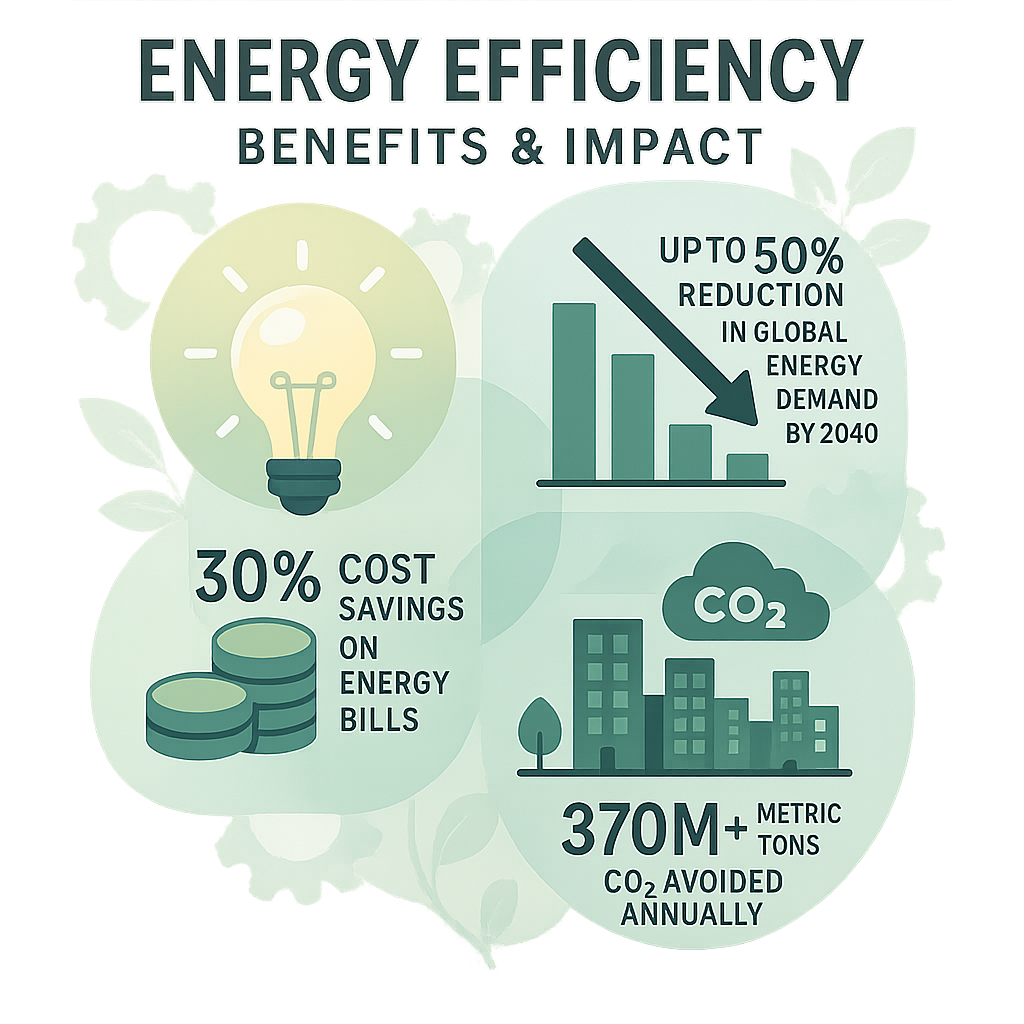Introduction
The topic of energy efficiency is increasingly critical in the context of global climate change and the quest for sustainable development. This blog post explores the importance of energy efficiency, its benefits, potential challenges, and implications for businesses and industries.
Why Energy Efficiency Matters
Energy efficiency involves using less energy to provide the same service or achieve the same outcome. It plays a vital role in reducing energy consumption, lowering greenhouse gas emissions, and mitigating climate change. According to the International Energy Agency (IEA), energy efficiency improvements could reduce global energy demand by up to 50% by 2040, which is essential for achieving global climate goals (IEA, 2021).
Key Benefits
- Cost Savings: Implementing energy-efficient technologies can lead to significant cost savings for organizations. For example, the U.S. Department of Energy estimates that energy-efficient buildings can save up to 30% on energy bills.
- Environmental Impact: Energy efficiency reduces the consumption of fossil fuels and the subsequent emissions of harmful pollutants. The U.S. Environmental Protection Agency notes that increasing energy efficiency in buildings can help avoid more than 370 million metric tons of CO2 emissions annually.
- Enhanced Productivity: Improved energy efficiency often leads to better indoor environments, which can boost worker productivity and health. Studies show a correlation between energy-efficient measures and increased employee performance.
- Regulatory Compliance: With regulations tightening around energy use and emissions, investing in energy efficiency can help organizations stay compliant and avoid potential penalties.
Challenges or Limitations
While the benefits of energy efficiency are clear, there are challenges and limitations to consider. Some of these include:
- Initial Costs: The upfront costs of implementing energy-efficient technologies can be high, which may discourage some organizations from making the investment. However, many programs provide financial incentives to offset these costs.
- Lack of Awareness: Some businesses may lack awareness or understanding of energy efficiency measures, leading to missed opportunities for savings and emissions reductions.
- Regulatory Barriers: In some regions, outdated building codes and regulations can limit the implementation of modern energy-efficient technologies.
- Market Fragmentation: The energy efficiency market can be fragmented, making it challenging for businesses to navigate available solutions and identify optimal practices.
Conclusion
Energy efficiency is essential for achieving sustainable development and combating climate change. By incorporating energy-efficient practices, organizations can realize significant cost savings, reduce environmental impact, and enhance productivity. While there are barriers to implementation, the long-term benefits far outweigh the initial challenges, making it a vital consideration for any forward-thinking business.



